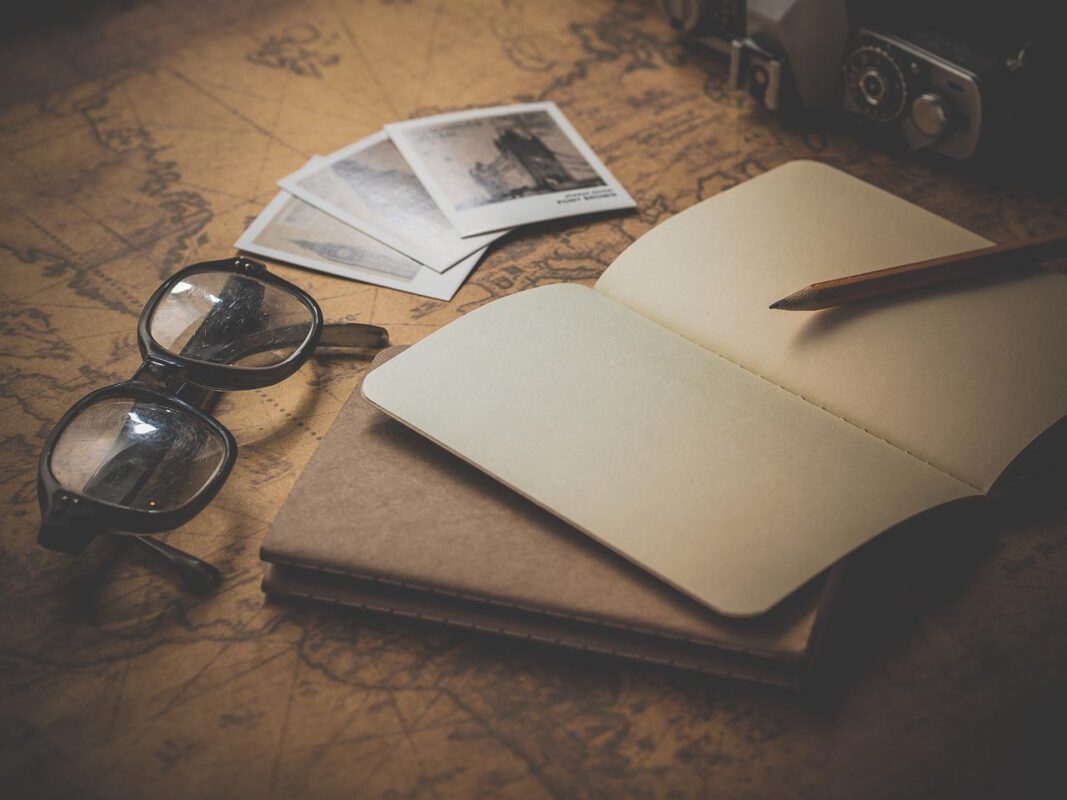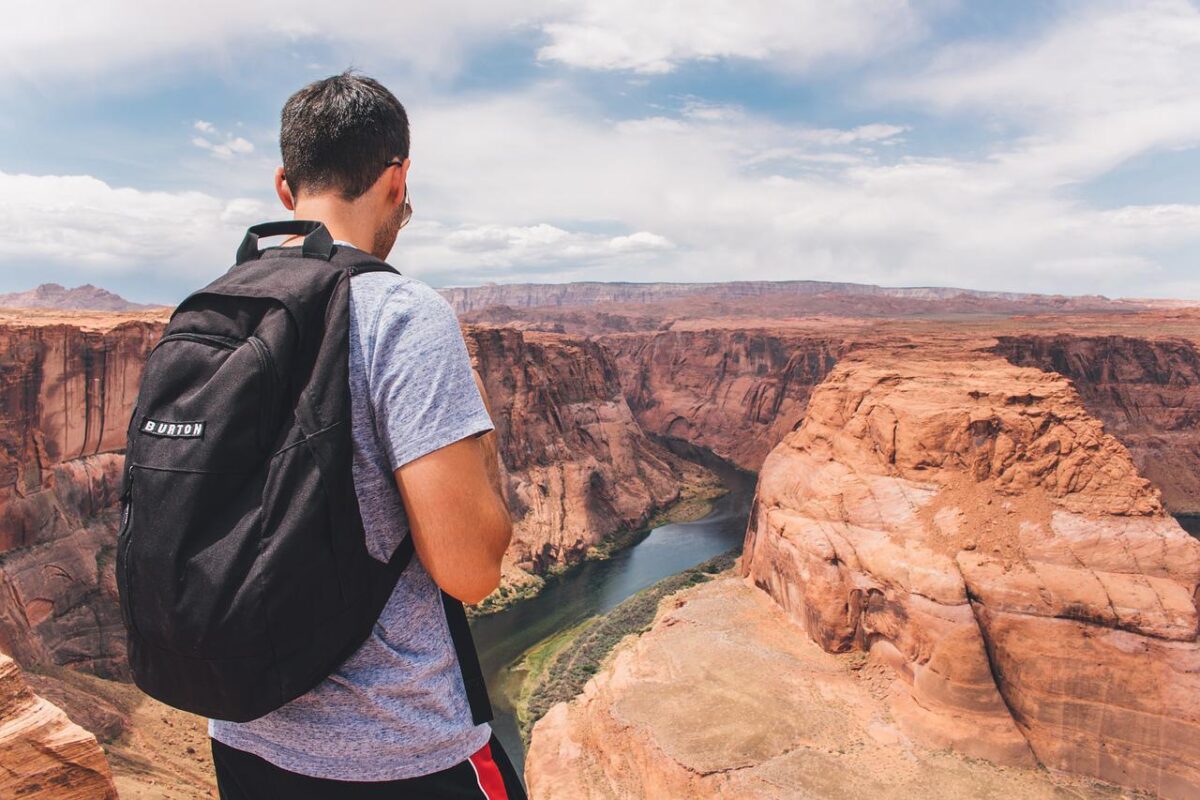When you’re constantly traveling, whether for business or leisure, you need to keep track of a multitude of things to make sure your time on the road goes smoothly.
Unless you’re an experienced traveler, getting used to the absence of stagnancy or being anchored to one place can be challenging.
And, of course, keeping up with best practices sometimes takes too much time you would much rather spend traveling.
There are also many traveling logistics to take care of, from living arrangements to travel safety measures.
While some things can be learned only from experience, you can always make use of tips and tricks you come across.
For those who travel frequently, here we have 6 useful pieces of advice that’ll help make the process of always being on the road easier.
Planning for the Logistics of Traveling
Purposeful and strategic planning done ahead of time is the easiest way to guarantee a smooth and safe trip.
Proper planning will help you map out what needs to be done before, during, and after the journey to make sure everything happens according to your liking.
It also helps to consider different circumstances that might, in the absence of planning, seem unexpected and leave you in a fix.
The basics include arranging transportation and accommodation, collecting all required documentation, and ensuring you have your essentials with you.
When you’re planning to be on the road for a while, the first and foremost thing you should think about is how you’ll be traveling.

Based on the length of the journey and the purpose of the trip, you’ll have to figure out if you’ll be using the bus, train, or car.
Frequent travelers usually have all these basics down. Pre-book your tickets and seats for the entirety of the journey.
Business trips are usually sponsored by companies, so they will take care of the transportation on your behalf.
It might also happen that your travel is unexpectedly cut short or prolonged, so you should have a backup to rely on.
If you’re using your own vehicle for the trip, make sure to have it serviced before the trip.
If you travel more than twice a month, then you should consider signing up for travel programs that provide discounts and different travel options.
Make use of the travel discounts and offers or mileage points that your credit/ debit card provides.
Another crucial aspect of traveling is keeping all required paperwork on hand, especially if you’re traveling internationally.
Easy access to ID proofs, passports, driver’s licenses, state permits, and other documents should be available.
Travel insurance details are also necessary to have readily accessible information.
A general rule of thumb is to save a soft copy of your documents, or you could back them up on secure online platforms like Drive and Cloud.
In addition to documents, confirm that you have proper cell service and internet available throughout the trip.
Your network provider might have different policies on cell service based on where you’re going.
Don’t expect free Wi-Fi (which isn’t advisable to use unless it’s a secure connection) and mobile data to suffice, so make arrangements accordingly.
Health and Travel Safety
When you’re traveling all the time, hopping from one place to another, it becomes easy to neglect your health.
With all that there is to look after, one’s health gets pushed down to the bottom of their list of priorities.
It’s always advisable to take care of your health and maintain your mental and physical well-being.
Neglecting your health and prioritizing other things at its expense is not worth it.
Only when you’re healthy will you be able to enjoy your trips and function optimally.
Being on the road comes with changing weather and living conditions, ups and downs in your eating habits and sleep cycle, and sitting for prolonged periods.
If you travel often, then these habits can significantly affect your health in the long run.
There are many simple things you can do to ensure you stay fit even when you’re on the road.
For instance, inculcate good dietary habits into daily life and pre-book healthy meals for when you arrive at your destination.
You can adopt travel-friendly fitness workouts and use fitness apps to monitor your progress.
Stick to a daily routine when you’re traveling so that your body doesn’t feel overwhelmed every time you take a sudden trip.
Most importantly, get a good night’s sleep, and rest whenever you can.
If you’re driving long-distance, make stops now and then, and do some minimal leg exercise to diffuse stiffness in the leg, shoulder, and back muscles.
Additionally, always keep basic medication, such as fever and nausea medicines, with you.
In addition, if you happen to travel to countries such as the USA, UK, or other regions where drip IV hydration therapy services are accessible, you might consider opting for such treatments.
IV therapies are well-regarded for their potential advantages, including strengthening the immune system, optimizing body hydration, enhancing metabolism, and various other positive effects.
Diligently follow travel safety measures to avoid being stuck in unwanted and harmful situations.
This is specifically applicable to those who drive for long distances during their travels.
Driving without rest for prolonged periods will leave you sleep-deprived and driving in such conditions is highly dangerous.
Make sure you’re well-rested, even if it means making an extra stop and spending another day in a hotel. You should also have a health and travel insurance plan to guarantee a refund for damages caused by unforeseen yet not uncommon circumstances such as accidents and contracting a detrimental disease.
You can’t account for every possible situation, but you can have a safety net to rely on in times of need.
Don’t Flood Your Home with Things if You Travel a Lot

This tip is helpful for those who travel very often and barely spend any time in their own home. Avoid filling your home with too much furniture and items that you’d regularly use if you weren’t traveling.
Keep only the essentials so as to prevent your home from being an anchor. Things you shouldn’t stock up on include heavy electric appliances, utensils, and large containers.
Another option would be to keep your belongings in a storage unit. There are many types of storage units, and the owners of Keepsafe self storage Perth describe in detail the different types of storage facilities one can opt for.
The advantage of storing your items is that if you ever plan to move or your travels become much more frequent, then uprooting won’t be a struggle.
Pack Smart
As you gain more travel experience, the skill of packing efficiently becomes easy to master.
How you need to pack depends on many different factors.
Will you be on the road for most of the trip or staying in a fixed place?
Does your trip span over a few days or a few weeks?

Keeping these factors in mind will help you pack better. Here are some tips for making packing an easier and more efficient process for you:
- If you’re out for a short trip, packing only what’s needed is the best way to go. Packing cubes are great tools that enable you to pack more in a small space. These cubes compress and separate your clothing and are very useful when packing in suitcases. Sort out your clothes and other belongings based on your itinerary for the day and pack them in a cube. This keeps your suitcase neat, and you won’t need to unpack the whole thing to just find a pair of socks. Compression bags are an alternative to packing cubes that work just as efficiently.
- A pro tip for packing is bringing multifunctional items that are versatile in their use. For instance, a scarf can be used in many different ways. Nowadays capsule wardrobes are in trend. The concept of a capsule wardrobe is to only carry clothing you’re sure you will wear, and which can be mixed and matched with other pieces to create different outfits. Multifunctionality also applies to other tools and appliances, such as using a 2-in-1 hair straightener and curler instead of carrying its separate components. You can also bring disposable items that you won’t require for the whole trip, so you can discard them when done and make space for new things.
- If you acquire new items on your trip and don’t have space to store them, you can try shipping them back to your home before departing. Search for the cheapest means available to ship back your stuff.
- If you travel often, the chances that you lose something every time you’re on a trip are high. A smart way to keep track of all your belongings and avoid losing or misplacing them is to take photos of your things or packed suitcase before leaving for your trip. There are also apps that you can download that’ll help you keep track of your baggage and its contents. This will help you if you lose your luggage and wish to file a travel insurance claim.
Figure Out Your Living Situation
You need to figure out where you’ll live during your trip beforehand to avoid fumbling around as you try to find accommodations at the eleventh hour.
As with traveling, hotel booking should also be done well ahead of the trip. If you’re going on a company-sponsored trip, then the living situation shouldn’t be much of a worry.
However, if it is an independent trip, then you’ll have to chalk out the logistics of staying in a place new to you.
Aside from booking hotels, you need to make dining arrangements.
Look through local restaurants and pre-book meals if necessary. Go over check-in and check-out dates to avoid confusion.
You can become a member of hotel loyalty programs to benefit from discounts, free stays, and other offers. If you’re planning to be away from your home for a long time, then check out temporary leasing options, rentals, or stay with a roommate.
If you have your own house or apartment, think about leasing it for the time you’re away. You can rent it out to temporary residents or make it available for one-day or two-day bookings.
This way you won’t be paying rent unnecessarily and will also be making some money from the arrangement. Similarly, if you have a vehicle at home, rent it out so it won’t be collecting dust while you’re away.
Research Your Destination

If the places you visit are familiar to you, then researching the place isn’t necessary.
However, if every time you go on a trip, your destination changes, then having an idea of the place is recommended.
Even if it’s a business trip, you should still do your research. If you wish to spend a day exploring the place, then your reading will assist you in doing so. If you’re planning a road trip or vacation, then creating a list of things you want to do and wish to see is a good place to start.
Keep track of nearby hotels and the addresses of all the places you intend on visiting to ensure your safety if things don’t go as planned.
You can get all the information you need from travel blogs, social media, and trip planning apps.
If you have a thorough idea of how you want to spend your time, you’ll be able to get from one place to another without wasting any time. Prior research will give you a general understanding of the place, its people, popular tourist attractions, and hidden treasures! Do your research and you will be well-rewarded.
We all have busy lives that are bound to get monotonous at times. This is why it’s so important to take time off for yourself to explore the world around you and get on the road. Traveling is one of those little things that add texture and depth to life. Regardless of the purpose of the trip.
Whether it be business or pleasure, the delights of traveling will definitely lighten your soul. If you’re a frequent traveler you’ll know that while spending your time in new places can be exhilarating, it can be equally tiring at times.
But if you get the basics of traveling down and keep in mind the tips we mentioned, you’ll be able to double the fun you have while traveling.

